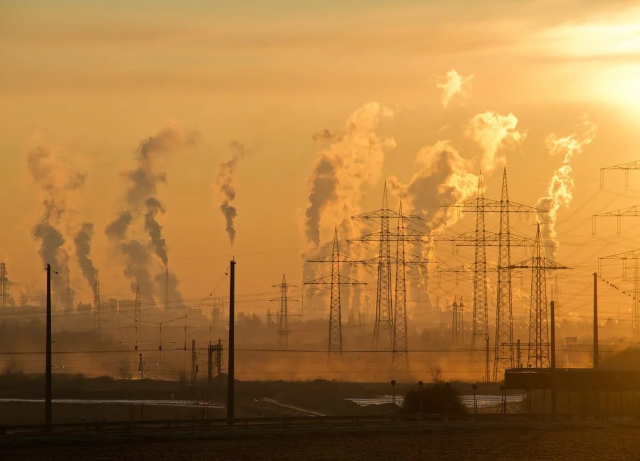The effects of climate change are becoming increasingly evident. From extreme weather events to rising sea levels and melting ice caps, it’s clear that climate change can no longer be ignored or put on the back burner.
While everyone must take part in combating this global issue, businesses have a unique opportunity to avert the worst effects of climate change. Aside from being the largest consumers of energy and resources, they also have a significant influence over their stakeholders—suppliers, employees, customers, investors, governments, and communities—which can result in larger-scale changes.
According to reports, businesses are responsible for more than half of global greenhouse gas emissions, with commercial and residential buildings taking up another 13%. What’s even scarier is that most emissions have come from just a few industries. And yet, many companies are still not taking any steps to reduce their environmental impact and mitigate the effects of climate change.
The time for action is now. Businesses need to recognize their environmental impact and take steps to reduce it, not only for their own sake but also for the planet’s future. Here are seven reasons why businesses must act on climate change now:
1. Worsening Natural Disasters
One of the most immediate and devastating effects of climate change is the increase in the frequency and intensity of natural disasters. Areas that have historically been at low risk for extreme weather events are now facing floods, hurricanes, and even tornadoes due to changing global temperatures.
As these natural disasters become more frequent and severe, businesses risk massive losses due to property damage, supply chain disruptions, and decreased customer demand. Yet these disasters can be mitigated if companies take proactive steps to reduce their carbon footprint and limit emissions.
2. Increased Cost of Energy
Another consequence of climate change is the rising energy cost, as traditional fossil fuels become increasingly scarce and more expensive to access. This increased cost has a ripple effect from higher transportation costs due to fuel prices to higher production costs resulting from energy-intensive processes. Consequently, consumers are the ones who often bear the brunt of these costs.
Businesses can offset this cost by investing in more energy-efficient operations and renewable energy sources such as solar and wind power. Doing so will reduce their dependence on traditional fossil fuels and save money in the long run while also taking their part in fighting climate change.
3. Supply Chain Disruption
Extreme weather events caused by climate change also disrupt the global supply chain and delay the production and delivery of goods. In addition, due to rising temperatures and more unpredictable weather patterns, certain products, such as fresh produce, are becoming increasingly unreliable and difficult to source.
Businesses have the power to reduce this disruption by using their influence to push for more sustainable and climate-friendly farming practices from their suppliers, such as water conservation, zero tillage farming, and agroforestry. They must only commit to working with suppliers who share the same commitment to sustainability.
4. Global Economic Turmoil
The economy is deeply connected to climate change, as nations worldwide are forced to spend more money adapting to the changing environment. This increased spending leads to global economic instability, as governments are forced to pull resources away from other vital areas such as health care and education.
Businesses have a unique opportunity to help stave off this global economic turmoil by investing in green projects and infrastructure that create jobs. That way, companies can assist in creating a more resilient and prosperous global economy.
5. Compounding Garbage Problem
The world is facing an ever-growing garbage problem, with the United States alone producing more than 250 million tons of trash per year. This waste not only contributes to climate change through GHG emissions, but it also significantly impacts human health and the environment.
This pollution crisis can be addressed if businesses invest in initiatives that reduce waste and promote sustainable production and consumption models, including sustainable packaging solutions, implementing recycling programs, and avoiding single-use plastics whenever possible.
6. Deterioration of Natural Resources
Natural resources are the lifeblood of any business, from the materials and energy they use to produce goods to the land they need for factories. Unfortunately, climate change is leading to a rapid deterioration of these resources, as rising temperatures cause droughts, floods, wildfires, and soil degradation that deplete some of the world’s most important sources of water, food, fuel, and other materials.
There are a variety of steps businesses can take to combat this resource depletion, such as implementing regenerative agriculture practices that restore soil health, reducing water consumption, and using renewable energy sources. Businesses can secure the health of the world and their bottom line for years by investing in these solutions.
7. Legal Liability
As global temperatures continue to rise, businesses are increasingly exposed to legal liability if they are found to be contributing to climate change. Companies must therefore take proactive steps to reduce their carbon footprint or face expensive lawsuits and potential fines from regulatory bodies.
To protect themselves from legal action, businesses must prioritize decarbonization efforts and be transparent about their sustainability practices. They must also ensure that all suppliers, vendors, and partners comply with all environmental laws and regulations to ensure they are not exposing themselves to unnecessary risk.
CONCLUSION
The scenarios outlined above are just a few of the many challenges posed by climate change. And merely acknowledging the problem is not enough. Businesses must take proactive steps to reduce their carbon footprint and invest in solutions to the climate crisis. Now is the time to take action! With every passing day, the stakes become higher and more urgent. Failing to act now will have dire consequences — both environmentally and economically — that could prove catastrophic to businesses if they are not adequately prepared. So it’s time to act fast and start taking meaningful action to address climate change. The future of the planet and businesses depends on it.


